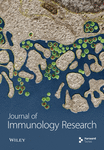Regular Consumption of a Flavanol-rich Chocolate can Improve Oxidant Stress in Young Soccer Players
Abstract
The consumption of a diet rich in certain flavonoids, including the flavanol sub-class, has been associated with a reduced risk for vascular disease. We evaluated the effects of the regular consumption (14 d) of a flavanol-containing milk chocolate (FCMC) or cocoa butter chocolate (CBC) on variables related to vascular disease risk, oxidative stress and physical activity. Twenty-eight free-living, young (18–20 years old) male soccer players consumed daily 105 g of FCMC (168 mg of flavanols) or CBC (<5 mg of flavanols), as part of their normal diet. The consumption of FCMC was significantly associated with a decrease in diastolic blood pressure (-5 mm Hg), mean blood pressure (-5 mm Hg), plasma cholesterol (-11%), LDL-cholesterol (-15%), malondialdehyde (-12%), urate (-11%) and lactate dehydrogenase (LDH) activity (-11%), and an increase in vitamin E/cholesterol (+12%). No relevant changes in these variables were associated with CBC consumption. No changes in the plasma levels of (-)-epicatechin were observed following analysis of fasting blood samples. In conclusion, FCMC consumption was associated with changes in several variables often associated with cardiovascular health and oxidant stress. The presence of significant quantities of flavanols in FCMC is likely to have been one of the contributing factors to these results.




